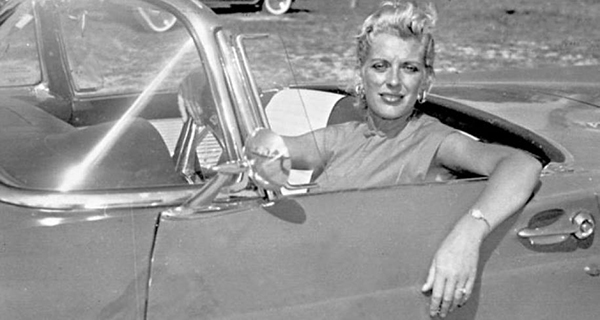 I’d been in Canada for just a few months when the Munsinger affair broke.
I’d been in Canada for just a few months when the Munsinger affair broke.
In March 1966, John Diefenbaker – the former Progressive Conservative prime minister – was berating Liberal cabinet minister Lucien Cardin in the House of Commons on the subject of government laxity regarding security.
Exasperated, Cardin struck back by raising the Munsinger affair, which had happened several years previously on Diefenbaker’s prime ministerial watch.
Immediately, the media jumped all over it. We had our very own sex scandal!
The gist was simple.
Gerda Munsinger, a German immigrant and allegedly a low-level Soviet spy, had been sexually involved with at least one, and possibly two, of Diefenbaker’s cabinet ministers, thereby potentially compromising national security. It was like a Canadian version of Britain’s notorious Profumo scandal.
Truth be told, though, it didn’t have the same salacious glamour.
Whereas Profumo’s female protagonists – Christine Keeler and Mandy Rice-Davies – could be construed as youthful symbols of the emerging Swinging ’60s, the femme fatale in the Canadian saga seemed relatively staid. The newspaper photos of Munsinger depicted a figure from a prior era, a woman who was even bordering on matronly.
Born Gerda Heseler in 1929, she had grown up in wartime, and subsequently occupied, Germany. It was a difficult environment and she was apparently willing to compromise when it helped improve her situation.
Along the way, she was tagged with petty theft, prostitution and the suspicion of being a Soviet intelligence recruit. So when she tried to immigrate to the United States, her application was denied. Even a short-lived marriage to an American ex-serviceman – Michael Munsinger – didn’t help.
She also looked towards Canada, first being turned down but subsequently reapplying successfully under her married name. Arriving in Montreal in 1955, she worked a number of jobs, including nightclub hostess, model and call girl. In 1958, she met Pierre Sevigny.
Sevigny came from an established Quebec family and had served heroically during the Second World War, losing a leg in the process. Successful in business, he was elected to Parliament in the 1958 Diefenbaker landslide and then appointed associate defence minister.
In a 1966 interview with Maclean’s, Sevigny denied that Munsinger had been his mistress. By his reckoning, the term “mistress” implied she was his “kept woman” but he insisted he’d never given her any money. And he claimed their sexual relationship only lasted a matter of months.
Things turned tricky in 1960 when Munsinger applied for Canadian citizenship, co-sponsored by Sevigny and another cabinet minister of her acquaintance, George Hees. The RCMP got involved in the vetting process, discovered her past and her relationship with Sevigny (the latter via a wiretap), and briefed then-Justice Minister Davie Fulton.
Brought into the picture by Fulton, Diefenbaker hauled Sevigny over the coals and instructed him to terminate the relationship. But Diefenbaker also left Sevigny in his position and knowledge of the affair remained closely held. Shortly thereafter, Munsinger returned to Germany.
And that’s where it might have stayed were it not for the Cardin/Diefenbaker tussle.
Initially, there was a bizarre twist to the story. Munsinger, Canadians were told, had subsequently died.
Within a week, however, she was very much alive. By the simple expedient of going to Munich and using the phone book, the Toronto Star’s Robert Reguly tracked her down. Interviewed, she dismissed any implications of spying but acknowledged the sexual aspect of her relationships with cabinet ministers.
As the story continued to develop, the Liberal government established a judicial inquiry under the auspices of Supreme Court Justice Wishart Spence. Delivered later in the year, Spence’s report was critical of both Diefenbaker and Sevigny, in addition to being scathing in its assessment of Munsinger’s character. But it found no evidence of espionage, security breaches or criminal wrongdoing.
Life went on for the major players.
Sevigny, who had lost his seat in the 1963 election, turned to academia and dabbled in Quebec politics. He was awarded the Order of Canada in 1994 and died 10 years later.
Hees remained in politics, ultimately becoming a member of Brian Mulroney’s first cabinet in 1984. Retiring four years later, he was awarded the Order of Canada in 1989 and died in 1996.
Munsinger died in Munich in 1998.
Despite its hyped beginning, Canada’s first political sex scandal was a dud. To quote Munsinger, “it wasn’t a scandal, it was just life.”
Troy Media columnist Pat Murphy casts a history buff’s eye at the goings-on in our world. Never cynical – well, perhaps just a little bit.
The views, opinions and positions expressed by columnists and contributors are the author’s alone. They do not inherently or expressly reflect the views, opinions and/or positions of our publication.
